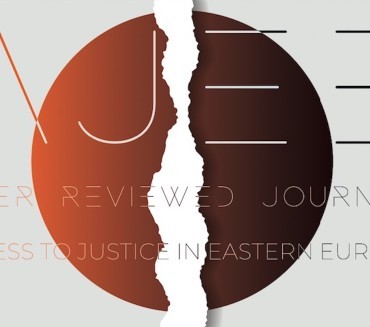1. Introduction. – 2. Methodology. – 3. Restorative Justice and Criminal Reconciliation: Nature and Legal Characteristics. – 3.1. Historical Development of Restorative Justice and Criminal Reconciliation. – 3.2. Conceptual Convergence of Restorative Justice and Criminal Reconciliation. – 3.3. Legal Nature of Restorative Justice and Criminal Reconciliation. – 4. Scope, Parties, and Conditions of Criminal Reconciliation in Jordanian, Emirati, and French Legislation. – 4.1. Scope of Criminal Reconciliation. – 4.2. Parties of Criminal Settlement. – 4.3. Terms of the Criminal Reconciliation Agreement. – 5. Impacts of Criminal Reconciliation on Criminal Litigation. – 5.1. Impact of Criminal Reconciliation During the Evidence-Gathering Stage. – 5.2. The Impact of Reconciliation During the Criminal Investigation Stage. – 5.3. Impact of Criminal Reconciliation During the Trial. – 5.4. Impact of Criminal Reconciliation After Sentencing. – 6. Conclusions.
Background: The study investigates how restorative justice in France, the United Arab
Emirates, and Jordan is triggered by reconciliation. With an emphasis on social cohesion and
justice, criminal reconciliation aims to address crime through alternative means. To address
the shortcomings of conventional criminal justice, this study looks at negotiated justice in these
nations. It places a strong emphasis on defending people's rights and mending the victim-
offender bond. Punitive measures are subordinated to compensatory justice.
Conciliatory justice has replaced traditional punitive measures in the criminal justice systems
of the United Arab Emirates, Jordan, and France. Due to the ineffectiveness of traditional
punitive measures for minor offences, parties are now able to settle their differences outside of
the legal system. An alternative to reconciliatory justice, criminal reconciliation attempts to
settle disputes amicably by addressing the repercussions of the crime, making amends,
reintegrating offenders, and fostering social harmony.
Methods: The study utilised descriptive, analytical-inductive, and comparative methods to
analyse legal aspects of criminal reconciliation in three countries. The analytical-inductive
method collected and examined data, the comparative method contrasted legal texts, and the
descriptive method described the phenomenon.
Results and conclusions: Jordanian, Emirati, and French legislations should establish an
arbitral system for criminal reconciliation, allowing accused individuals to plead for specific
crimes. Repeat offences should be addressed with legal action, and criminal reconciliation
should lead to the expiration of criminal claims, including social services and therapy.

